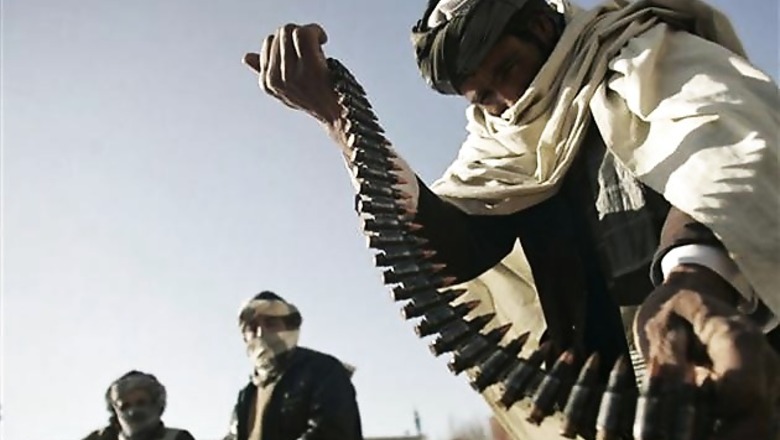
views
The Taliban beheaded seventeen partygoers, including two women dancers, in Afghanistan's volatile Helmand province as punishment, recalling the darkest days of rule by the ultra-conservative Islamist insurgents before their ouster in 2001.
The bodies were found on Monday in a house near the Musa Qala district where a party was held on Sunday night with music and mixed-sex dancing, said district governor Nimatullah. Men and women do not usually mingle in Afghanistan unless they are related, and parties involving both genders are rare and kept secret.
The killings, about 75 km (46 miles) north of the provincial capital Lashkar Gah, came at the beginning of a violent 24 hours for NATO and Afghan authorities in which 10 Afghan soldiers were killed in a mass insurgent attack, also in Helmand, while two US soldiers were slain by a rogue Afghan soldier.
"The victims threw a late-night dance and music party when the Taliban attacked" on Sunday night, Nimatullah, who only has one name, told Reuters.
There were no immediate claims of responsibility.
During their five-year reign, which was toppled by US-backed Afghan forces, sparking the present NATO-led war, the Taliban banned women from voting, most work and leaving their homes unaccompanied by their husband or a male relative.
Though those rights have been painstakingly regained, Afghanistan remains one of the worst places on Earth to be a woman.
Some democratic freedoms have also been wound back in what rights groups fear is an effort to reach a political reconciliation and possible power-sharing with the Taliban.
The Taliban gunmen stormed a lakeside hotel near Kabul in June demanding to know where the "prostitutes and pimps" were, witnesses said. Twenty people were killed.
The Taliban said they launched the attack on Qarga Lake because the hotel was used for "wild parties".
Helmand governor spokesman Daud Ahmadi said a team had been sent to the site of beheadings to investigate.
In another setback for NATO, an Afghan soldier shot dead two US troops in east Afghanistan on Monday, the latest in a series of insider killings that have strained trust between the allies ahead of a 2014 handover to Afghan security forces.
The deaths in Laghman province brought to 12 the number of foreign soldiers killed this month, prompting NATO to increase security against insider attacks, including requiring soldiers to carry loaded weapons at all times on base.
US Joint Chiefs of Staff chairman Martin Dempsey visited Kabul last week to talk about rogue shootings and urge Afghan officials to take tougher preventative action.
"ISAF troops returned fire, killing the ANA (Afghan National Army) soldier who committed the attack," the NATO-led International Security Assistance Force said in a statement.
There have been 33 insider attacks so far this year that have led to 42 coalition deaths. That is a sharp increase from 2011, when, during the whole year, 35 coalition troops were killed in such attacks, 24 of whom were American.
The chief coalition spokesman, German Brigadier-General Gunter Katz, told reporters the shootings would not prompt a winding back of vital cooperation or training with Afghan police and soldiers to curtail more shootings.
"We are not going to reduce the close relationship with our Afghan partners," Katz said.
Afghanistan's government said on Wednesday it would re-examine the files of 350,000 soldiers and police to help curb rogue shootings of NATO personnel, but accused "foreign spies" of instigating the attacks.
NATO commanders have played down the threat of infiltration, blaming most of the shootings on stress or personal differences between Afghans and their Western advisers that ended at the point of a gun, a frequent occurrence in Afghanistan.
But Katz said commanders now believed 10 per cent of attacks had a direct Taliban infiltration link, while another 15 per cent were suspected of having insurgent involvement.




















Comments
0 comment